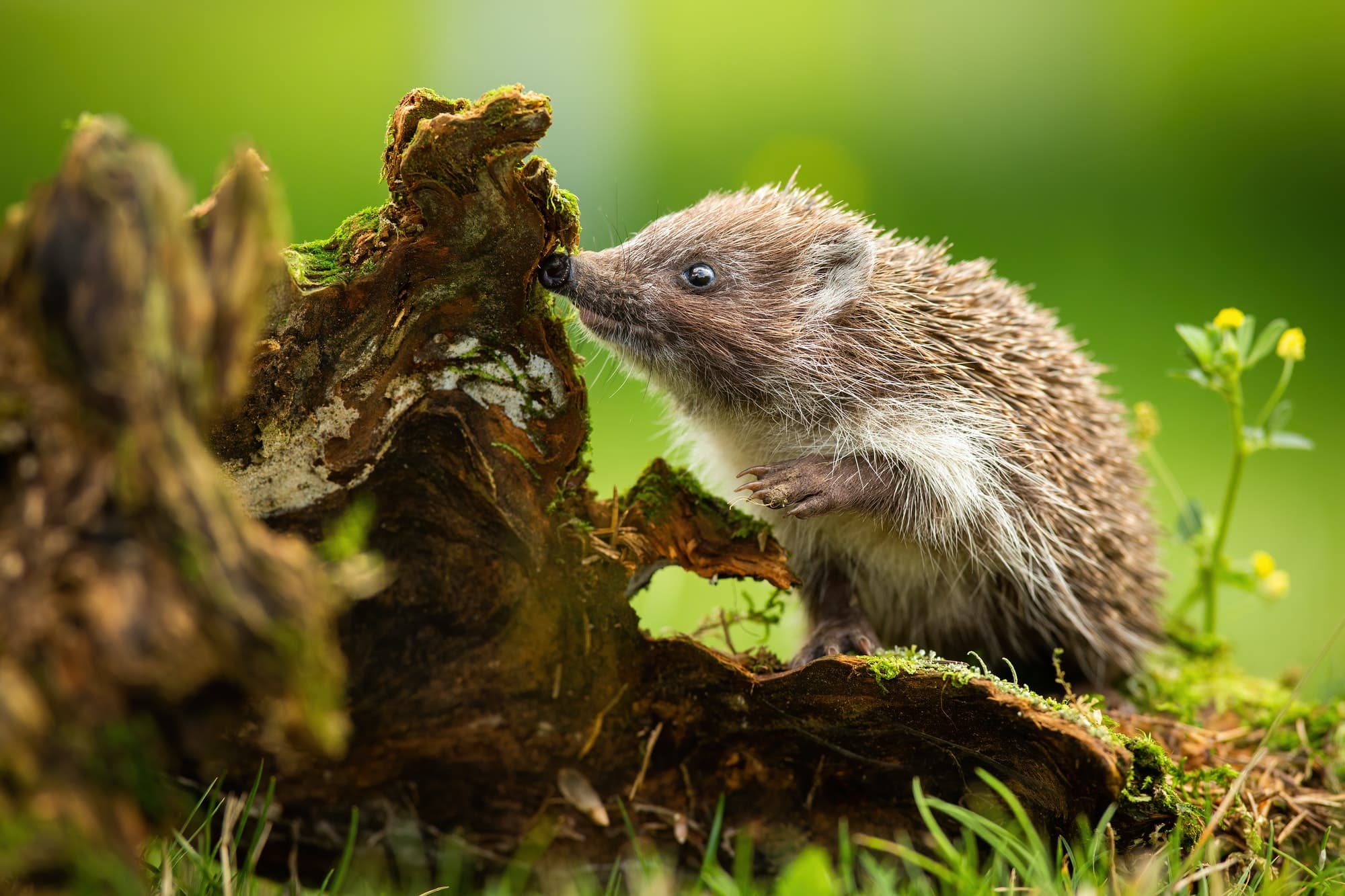What are the considerations for keeping a pet hedgehog in a high-rise apartment in London?

Hedgehogs have become increasingly popular as pets, especially among city-dwellers who value their compact size, unique personality, and the exotic appeal they bring into a home environment. However, keeping a pet hedgehog in a high-rise apartment in London isn't as simple as bringing home a cat or dog. There are some essential considerations to take into account, from understanding the hedgehog's wildlife heritage to ensuring the apartment environment suits the species' specific needs. Before you embark on this exciting journey of pet ownership, take the time to read the following guidelines carefully.
Understand the Nature of Hedgehogs
Hedgehogs are wild animals at heart. In their natural habitat, they roam several miles each night, forage for food, and burrow into cozy nests. Nurturing a pet hedgehog, therefore, requires more than just a basic understanding of wildlife in general. It's crucial to recognize that despite their small size and seemingly delicate nature, hedgehogs are exploratory, active, and need both physical and mental stimulation.
In the same genre : How to recognize and manage anxiety in a Russian Blue cat living in a busy urban environment?
In an apartment setting, especially in a high-rise building, these natural instincts can be challenging to accommodate. Providing enough space for exploration, ensuring a balanced diet beyond typical pet food, and considering the hedgehog's nocturnal nature are all necessary aspects of hedgehog care.
Space and Environment Needs
For many people, the appeal of having a hedgehog as a pet is partly due to their small size. They are seen as more suitable for apartments than larger animals. But while hedgehogs may be small in stature, they are big on personality and have needs that go beyond what a small cage can offer.
In the same genre : How to effectively manage chronic ear infections in Cocker Spaniels in moist UK climates?
Hedgehogs require a living area of at least 24 by 24 inches, but bigger is always better. This living space should include an area for sleeping, a separate place for waste, and plenty of room to roam and explore. In a high-rise apartment, creating such a space can be challenging, but not impossible.
Temperature control is also essential to hedgehog care. These animals are sensitive to cold and can hibernate if the temperature falls below 70 degrees Fahrenheit (21 degrees Celsius). In contrast, temperatures above 80 degrees Fahrenheit (27 degrees Celsius) can cause overheating. It is crucial to maintain a stable room temperature in your London apartment to keep your hedgehog healthy.
Legal Considerations
Before you decide to keep a hedgehog as a pet in London, it's essential to understand the legal implications. The keeping of hedgehogs as pets is regulated under the Wildlife and Countryside Act 1981. As it currently stands, it is illegal to keep a native European hedgehog as a pet in the UK, and severe penalties can be applied for those found in violation of this law.
However, the African pygmy hedgehog, a different species, can legally be kept as a pet. If you are considering a hedgehog as a pet, it's essential to ensure you are looking at the right species. It's also crucial to purchase your pet from a reputable breeder or pet store to ensure that you are not inadvertently supporting illegal wildlife trade.
Taking Care of a Hedgehog
Hedgehogs are relatively low-maintenance pets, but they do require some specific care. Their diet consists mainly of insects in the wild, so pet hedgehogs should be provided with a diet high in protein. Commercially available hedgehog food, supplemented with treats such as mealworms, can provide the necessary nutrition.
Regular exercise is essential for a hedgehog's health and wellbeing. A running wheel in their enclosure can provide an excellent outlet for their energy. Also, handling your hedgehog regularly will help build trust and strengthen your bond.
Hedgehogs also have very sharp quills, so using gloves when handling them, particularly in the early stages of your relationship, can be helpful. They can also carry diseases like salmonella, so proper hygiene is critical when handling them or cleaning their enclosures.
The Impact on the Hedgehog Population
While it may be legal and feasible to keep a hedgehog as a pet in a London apartment, it's essential to consider the broader impact of this trend on the overall hedgehog population. Wild hedgehog numbers are in decline across the UK. While keeping an African pygmy hedgehog is not directly linked to this decline, the increasing popularity of hedgehogs as pets may inadvertently lead to illegal wildlife trade, which can have devastating impacts on wild populations.
If you decide to keep a hedgehog as a pet, we recommend doing so responsibly. Ensure your pet is legally sourced, cared for correctly, and consider lending your support to hedgehog conservation efforts to help protect this unique species for future generations.
The Impact of Exotic Pets on Wildlife Conservation
When it comes to choosing an exotic pet like a hedgehog, pet owners should be mindful of the bigger picture. The surge in popularity of these small pets can lead to detrimental consequences on wild populations. For instance, the British Hedgehog Preservation Society reports that hedgehog numbers are in alarming decline. While the African pygmy hedgehog, commonly kept as pets, are not directly contributing to this, the exotic pet trade can put pressure on other endangered species.
There's also the risk of African pygmy hedgehogs being released into the wild by well-meaning but misinformed owners, which can disrupt local ecosystems. Though it might seem like a thoughtful gesture, releasing a domesticated African pygmy hedgehog into a nature reserve in east London, for example, is not beneficial to Harry the hedgehog or the local wildlife. These exotic pets do not have the skills to survive in the wild, and they can introduce diseases that native species are not equipped to handle.
Responsible pet ownership extends beyond caring for your pet's needs. It also includes understanding the bigger impact on wildlife conservation and animal welfare. A call to action for potential hedgehog owners is to support wildlife trusts, such as the British Hedgehog Preservation Society or the Animal Welfare Society. By donating, volunteering, or simply spreading awareness, you can help protect not just your pet, but its wild counterparts as well.
Conclusion: Is A Hedgehog the Right Pet for You?
Deciding to keep pets, particularly exotic ones, like hedgehogs in a high-rise apartment in London, requires careful consideration. These endearing creatures are not just smaller alternatives to a dog or cat, nor are they low-maintenance pets like guinea pigs. They are unique animals with specific needs that must be met to ensure their health and happiness.
Before you make a decision, remember to research the breed's requirements, the space you have available, and the legalities involved. Contact hedgehog experts for advice and buy only from a reputable source to avoid supporting illegal animal trade.
The lives of these small pets should be valued and respected. By choosing to become an informed and responsible pet owner, you not only significantly contribute to the welfare of your pet hedgehog but also to the wider wildlife community. So, if you are ready for the commitment, a hedgehog can indeed be a delightful addition to your London apartment. Just remember, their care goes beyond their cages and extends to supporting the conservation of their wild cousins.
